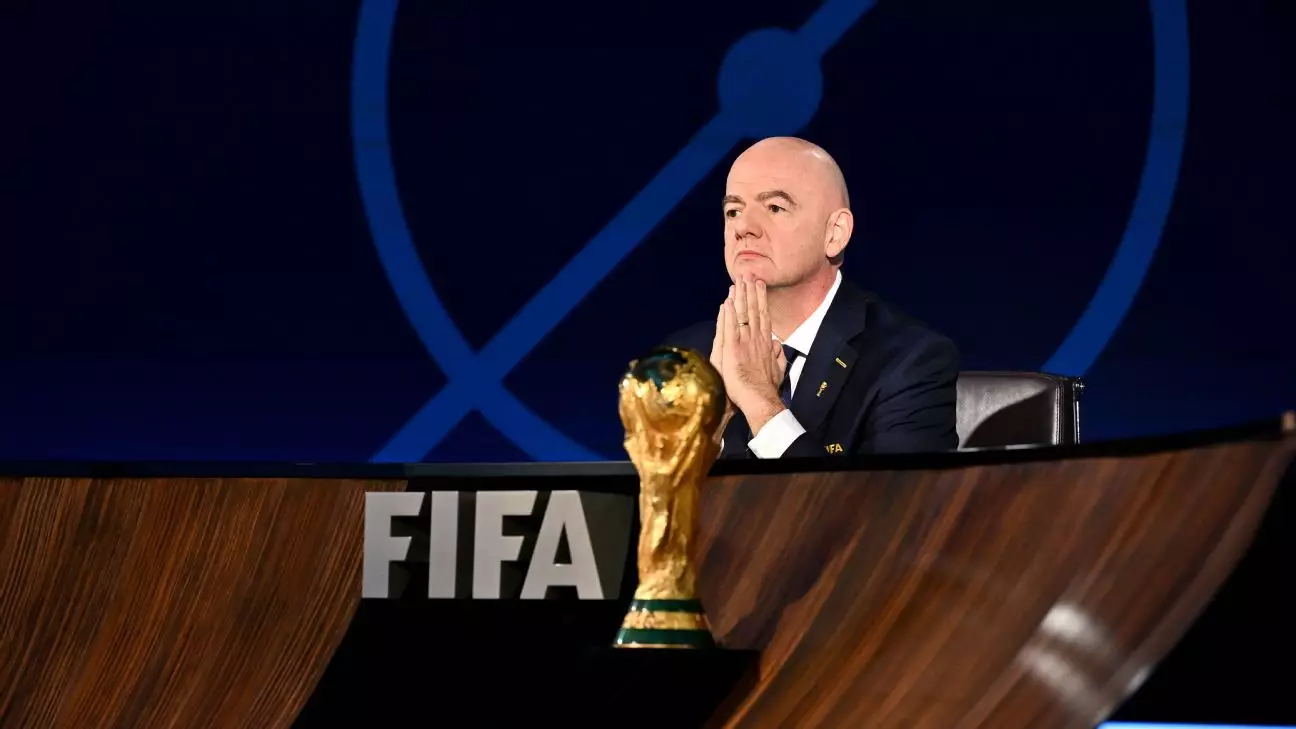The announcement regarding the venues for the upcoming FIFA World Cups in 2030 and 2034 has sent ripples through the footballing world. Set to unfold across Morocco, Portugal, and Spain, the 2030 iteration will also feature exciting matches in South America, while Saudi Arabia is poised to exclusively host the 2034 tournament. This development was unveiled during a conference led by FIFA president Gianni Infantino, marking a significant change in the landscape of international football. The decisions, derived from a general congress that heralded both enthusiasm and criticism, signal FIFA’s strategy to amplify football’s global reach.
A notable aspect of this year’s World Cup selections is the lack of competition during the bidding process. Both hosting rights for 2030 and 2034 were awarded without the benefit of rival bids; a fact that raises eyebrows regarding transparency and fairness. While Infantino expressed optimism about enhanced opportunities for the sport, the sole-bid structure limits the traditional level of competition that often drives better facilities and innovative ideas. Countries like Australia and Indonesia had initially signaled interest in the 2034 bid, but their withdrawal suggests a lack of confidence or inadequate resources to challenge Saudi Arabia’s offering.
The decision-making process has not been without controversy. The Norwegian Football Federation has openly criticized what they deem a “flawed and inconsistent” bidding structure. Their stance begs the question of whether FIFA is truly serving the best interests of the sport or simply following a streamlined path that sidesteps critical scrutiny. While acclamations from member federations might imply broad consensus, dissenting voices cannot be ignored, especially when they emerge from respected national federations. The integrity of any sporting body hinges on its ability to maintain fair competition among potential hosts.
The 2030 World Cup is particularly momentous as it commemorates the centennial anniversary of the inaugural tournament held in Uruguay. It will also feature matches in the historic Centenario Stadium, representing a blend of tradition and modernity. Such milestones not only celebrate football’s rich history but also provide a platform for emotional resonance with fans worldwide, reconnecting them with the origins of the sport.
With the 2034 tournament slated to take place in Saudi Arabia, a host of logistical challenges arises, notably the potential for a winter World Cup. This proposal clashes with established football calendars across Europe, necessitating cooperation from major leagues like the Premier League and LaLiga. These conflicts highlight the balancing act FIFA must perform: promoting football globally while also respecting domestic leagues that drive professional standards and fan engagement.
While FIFA’s dual host announcements reflect an ambitious vision for future World Cups, they also open the floor to necessary discussions about fairness, competition, and the overall impact on the sport. As football continues to evolve, the stakeholders involved—from players to fans—must ensure that these significant events enrich the global football community.

